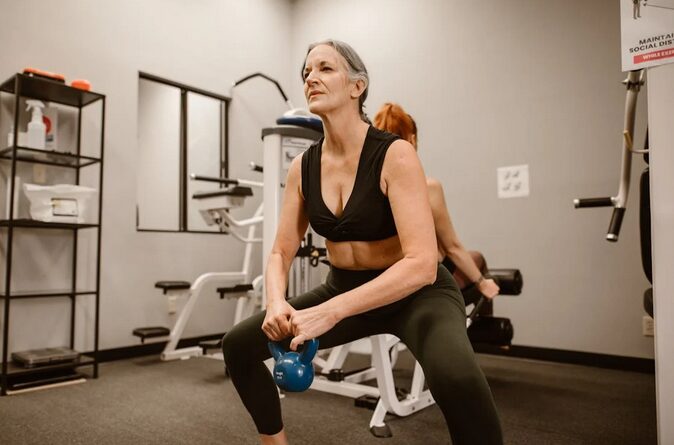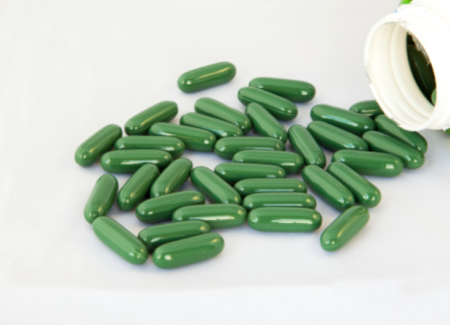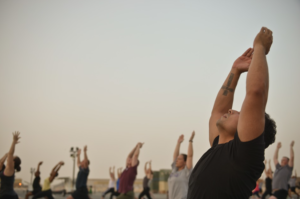Kettlebells aren’t new. They’ve been used for centuries in Russia to build strength, agility, and toughness. But only recently have they gained widespread attention in modern fitness. The difference between a kettlebell and traditional weights is simple: shape and movement. A kettlebell’s center of mass is off-centered, making your muscles work harder to control every rep. This builds not just strength but explosive power. If you want to unlock their full potential, try this kettlebell training guide for serious power to get started the right way.
Understanding Explosive Strength
Explosive strength is your ability to generate force quickly. Think of jump squats, sprints, or powerful punches. These movements rely on more than raw strength. They require speed and coordination. This is where kettlebells shine. Unlike machines or barbells that often isolate muscles, kettlebells force your body to move as a unit. You develop power from the ground up through your feet, legs, hips, and core.
The Power of the Swing
One of the most effective kettlebell movements is the swing. It looks simple but delivers serious results. The swing trains your hips, glutes, and hamstrings to fire in sync. That’s the same chain of muscles used in jumping, sprinting, and lifting. As you explode forward in a swing, your body learns to produce force fast. This is the foundation of explosive movement. The swing also teaches you control. Each rep requires a precise blend of tension and relaxation. You must generate maximum force, then immediately recover. That pattern of explosion, reset, explosion again is exactly how athletes perform under pressure.
Efficient and Scalable for Everyone

You don’t need a gym full of equipment. One kettlebell is enough to build serious strength and conditioning. This makes it perfect for people with limited space or time. A 20-minute kettlebell session can replace an hour of gym work. Kettlebell training also scales. Beginners can start with basic swings or goblet squats. Advanced users can move to Turkish get-ups, snatches, or complexes that demand the utmost focus. There’s always room to grow. That progression makes it one of the most adaptable tools in fitness.
Grip, Core, and Coordination
Kettlebells don’t just build power. They improve grip strength, posture, and balance. Because of their unique shape, even holding a kettlebell activates stabilizing muscles in your wrists, arms, and shoulders. This is critical if you’re training for sports or physically demanding work. Your core is constantly engaged. Whether you’re doing swings, cleans, or snatches, your midsection works to prevent rotation and keep you balanced. Over time, this builds real-world strength. It helps with everything from lifting groceries to dominating on the field.
Why Athletes Trust Kettlebells

Athletes across sports, such as football, martial arts, and sprinting, use kettlebell training to gain an edge. The reason is simple: results. Movements like the kettlebell snatch or clean and press mimic explosive athletic actions. They challenge coordination, speed, and timing. And they improve how the body works as a system. Unlike traditional lifts that might take weeks to show results, kettlebells often deliver improvements fast. More jump height. More sprint speed. Better reaction time. These gains matter, and athletes recognize that.
Like any powerful tool, kettlebells must be used correctly. Form matters. To avoid injury and get the best results, start light. Focus on proper hip hinge mechanics before adding power. Learn from a certified trainer if possible. Online tutorials are helpful, but real-time feedback is better. Listen to your body. Explosive training is intense. Ensure enough recovery between sessions to allow your nervous system to adapt. This helps you get stronger, faster, and safer over time. When done right, kettlebell training transforms how your body moves. It teaches power, control, and efficiency. And it does so with a level of simplicity that few other tools offer.…












 What you also eat impacts what supplements you might need. For example, if you don’t eat enough fruits and vegetables, you might want to take a vitamin C supplement. Vitamin C helps to boost your immune system, and it can also help your body absorb iron from food.
What you also eat impacts what supplements you might need. For example, if you don’t eat enough fruits and vegetables, you might want to take a vitamin C supplement. Vitamin C helps to boost your immune system, and it can also help your body absorb iron from food.
 Our lungs work hard every day to supply our body with the oxygen it needs to function. But, according to HealthStatus, most people only use a small portion of their lungs’ capacity. When you hike, your lungs have to work harder as you walk uphill and take in more breaths per minute. This helps to increase your overall lung capacity and makes everyday activities that much of a breeze.
Our lungs work hard every day to supply our body with the oxygen it needs to function. But, according to HealthStatus, most people only use a small portion of their lungs’ capacity. When you hike, your lungs have to work harder as you walk uphill and take in more breaths per minute. This helps to increase your overall lung capacity and makes everyday activities that much of a breeze. If you’re trying to lose weight or maintain your weight, then you need to be aware of the number of calories you’re burning. According to HealthStatus, a 155-pound person can burn up to 298 calories in 30 minutes of hiking. That number increases to 372 calories if you hike for an hour.
If you’re trying to lose weight or maintain your weight, then you need to be aware of the number of calories you’re burning. According to HealthStatus, a 155-pound person can burn up to 298 calories in 30 minutes of hiking. That number increases to 372 calories if you hike for an hour.
 Regular exercise is one of the best things you can do for your heart
Regular exercise is one of the best things you can do for your heart  It’s essential to see your doctor regularly, even if you feel healthy. Your doctor can check for signs of heart disease and help you make lifestyle changes that may reduce your risk of developing the disease. If you have a family history of heart disease, your doctor may recommend more frequent or earlier checkups. You should also let your doctor know if you have any risk factors for heart disease, such as high blood pressure, high cholesterol, or diabetes.
It’s essential to see your doctor regularly, even if you feel healthy. Your doctor can check for signs of heart disease and help you make lifestyle changes that may reduce your risk of developing the disease. If you have a family history of heart disease, your doctor may recommend more frequent or earlier checkups. You should also let your doctor know if you have any risk factors for heart disease, such as high blood pressure, high cholesterol, or diabetes.
 When it comes to keeping yourself safe during the global pandemic, staying fit is necessary. One thing that you can do is to eat a healthy diet. You can include more vegetables, dairy products, and red meat. You can also add some honey to your diet routine.
When it comes to keeping yourself safe during the global pandemic, staying fit is necessary. One thing that you can do is to eat a healthy diet. You can include more vegetables, dairy products, and red meat. You can also add some honey to your diet routine. The best way to protect yourself from the virus is to wear a mask. You should always wear a mask when entering a crowded plane, bus or train. Pregnant women and children under the age of 2 are also required to wear a mask in public spaces.
The best way to protect yourself from the virus is to wear a mask. You should always wear a mask when entering a crowded plane, bus or train. Pregnant women and children under the age of 2 are also required to wear a mask in public spaces. It is recommended to get a COVID-19 test regularly. It is because, in most cases, there are no symptoms of this virus. As a result, you might not know if you have it, but it is still contagious. If you have the virus, doctors will prescribe medication to help you recover faster. The sooner people know they have the virus, the sooner they can start taking care of themselves and getting the best treatment possible.
It is recommended to get a COVID-19 test regularly. It is because, in most cases, there are no symptoms of this virus. As a result, you might not know if you have it, but it is still contagious. If you have the virus, doctors will prescribe medication to help you recover faster. The sooner people know they have the virus, the sooner they can start taking care of themselves and getting the best treatment possible.
 If you’re new to weightlifting, starting with your bodyweight is a good idea. This way, you can get comfortable with the basic movements and build strength before adding any additional weight. Once you’ve mastered the exercises using your body weight, you can then move on to using weights. An easy way to start is by doing bodyweight squats, lunges, and push-ups. These exercises are a great way to work the entire body, and they can be done anywhere with no equipment necessary. If you’re looking for a more challenging workout, try adding some pull-ups or dips. These exercises require minimal equipment (a bar or bench for dips and a pull-up bar or tree branch for pull-ups), and they are great for building strength and muscle mass.
If you’re new to weightlifting, starting with your bodyweight is a good idea. This way, you can get comfortable with the basic movements and build strength before adding any additional weight. Once you’ve mastered the exercises using your body weight, you can then move on to using weights. An easy way to start is by doing bodyweight squats, lunges, and push-ups. These exercises are a great way to work the entire body, and they can be done anywhere with no equipment necessary. If you’re looking for a more challenging workout, try adding some pull-ups or dips. These exercises require minimal equipment (a bar or bench for dips and a pull-up bar or tree branch for pull-ups), and they are great for building strength and muscle mass. When you’re just starting, it’s essential to lift the right amount of weight. If you choose too heavy a weight, you’ll likely end up struggling and could even injure yourself. On the other hand, if you decide to be lightweight, you won’t see any results. So how do you find the right weight? An excellent way to start is by using the weight you can lift for 12-15 repetitions. Once you can easily do 15 reps of a particular exercise, it’s time to increase the weight. Another thing to keep in mind when lifting weights is form. Make sure always to use proper form, even if it means lightening the weight slightly. This will help avoid injuries and ensure that you’re getting the most out of your workout.
When you’re just starting, it’s essential to lift the right amount of weight. If you choose too heavy a weight, you’ll likely end up struggling and could even injure yourself. On the other hand, if you decide to be lightweight, you won’t see any results. So how do you find the right weight? An excellent way to start is by using the weight you can lift for 12-15 repetitions. Once you can easily do 15 reps of a particular exercise, it’s time to increase the weight. Another thing to keep in mind when lifting weights is form. Make sure always to use proper form, even if it means lightening the weight slightly. This will help avoid injuries and ensure that you’re getting the most out of your workout. Stretching is an essential part of any workout routine, and it’s necessary when lifting weights. Stretching before a weightlifting session can help reduce the risk of injury, and stretching after a workout can help to improve flexibility. There are many different stretches that you can do, so find ones that target your specific muscle groups.
Stretching is an essential part of any workout routine, and it’s necessary when lifting weights. Stretching before a weightlifting session can help reduce the risk of injury, and stretching after a workout can help to improve flexibility. There are many different stretches that you can do, so find ones that target your specific muscle groups.


 First, let’s take a step back to understand why testosterone is an essential hormone. This hormone is a naturally occurring steroid hormone found in all living things. Although it is also found in small amounts in women, it is primarily a male sex hormone. It is secreted by the testes in men, while in women, it is produced by the ovaries. It is the most important male hormone and essential for developing male characteristics such as a deep voice, hair growth, muscle development, and bone mass. Learn more about the importance of testosterone hormones for men through
First, let’s take a step back to understand why testosterone is an essential hormone. This hormone is a naturally occurring steroid hormone found in all living things. Although it is also found in small amounts in women, it is primarily a male sex hormone. It is secreted by the testes in men, while in women, it is produced by the ovaries. It is the most important male hormone and essential for developing male characteristics such as a deep voice, hair growth, muscle development, and bone mass. Learn more about the importance of testosterone hormones for men through  Strength training is an excellent way to increase testosterone levels. Exercises such as squats or bench presses, pull-ups, and other practices targeting large muscle groups are beneficial for men with low testosterone levels. This way, you can improve your testosterone levels naturally and avoid the issues.
Strength training is an excellent way to increase testosterone levels. Exercises such as squats or bench presses, pull-ups, and other practices targeting large muscle groups are beneficial for men with low testosterone levels. This way, you can improve your testosterone levels naturally and avoid the issues. Excessive alcohol consumption can interfere with the average function of the endocrine system. This system has close relation with testosterone production in men’s bodies. Therefore, you have to avoid alcohol to keep your testosterone levels in good condition. Otherwise, alcohol can lead to severe problems in your sex life that are difficult to treat.
Excessive alcohol consumption can interfere with the average function of the endocrine system. This system has close relation with testosterone production in men’s bodies. Therefore, you have to avoid alcohol to keep your testosterone levels in good condition. Otherwise, alcohol can lead to severe problems in your sex life that are difficult to treat.
 In statistics, human well-being refers to this detailed set of things that analytics focuses on. For example, it can be the temperature choices of teenagers with measles. It may be rural villagers who are pre-diabetic. The population also applies to another region of the study. It may be the number of adult incomes in a county or perhaps the ethnic classes living in a city. At
In statistics, human well-being refers to this detailed set of things that analytics focuses on. For example, it can be the temperature choices of teenagers with measles. It may be rural villagers who are pre-diabetic. The population also applies to another region of the study. It may be the number of adult incomes in a county or perhaps the ethnic classes living in a city. At  Most clinics use Population Health Management to separate individuals by diagnosis, for example, patients with hypertension. Rules tend to focus on individuals with high care needs to ensure they receive more effective case management. Most importantly, the health of a country’s residents is improved by addressing the environment in which they live. For example, health departments track the incidence of influenza in a county to alert doctors and hospitals to provide the level of care needed. They need to understand that the people whose health is being treated depend on who provides the support.
Most clinics use Population Health Management to separate individuals by diagnosis, for example, patients with hypertension. Rules tend to focus on individuals with high care needs to ensure they receive more effective case management. Most importantly, the health of a country’s residents is improved by addressing the environment in which they live. For example, health departments track the incidence of influenza in a county to alert doctors and hospitals to provide the level of care needed. They need to understand that the people whose health is being treated depend on who provides the support. Once you identify the people, you specify the data to be collected. It will most likely be a quality or data group in a clinical setting that determines what information needs to be collected. Once the data is collected, you can identify trends in care. For example, a practice may find that most patients identified as hypertensive are managing their disease well. The team applies a statistical approach called predictive analysis to see if you can find commonalities among people whose blood pressure is not well controlled from the data variables collected. Practices collected several clues, which they shared with various groups. For example, they reported data for “intended use” and commercial payers along with employee groups.
Once you identify the people, you specify the data to be collected. It will most likely be a quality or data group in a clinical setting that determines what information needs to be collected. Once the data is collected, you can identify trends in care. For example, a practice may find that most patients identified as hypertensive are managing their disease well. The team applies a statistical approach called predictive analysis to see if you can find commonalities among people whose blood pressure is not well controlled from the data variables collected. Practices collected several clues, which they shared with various groups. For example, they reported data for “intended use” and commercial payers along with employee groups.